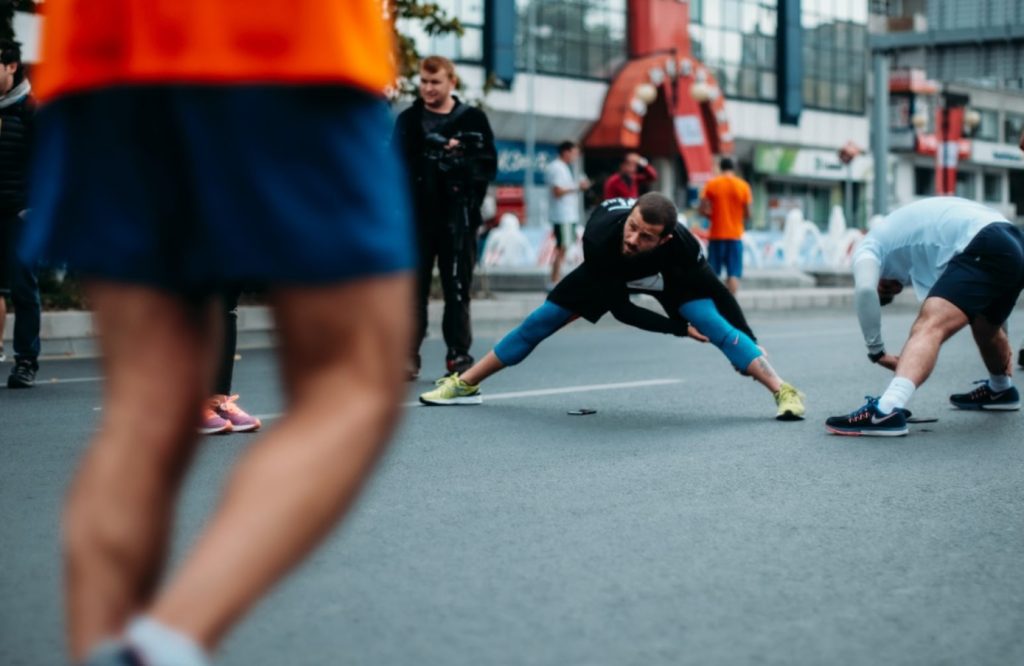
Introduction to Triathlon Coaching
Triathlon coaching plays a pivotal role in shaping the success of athletes at every level. Beyond merely designing and delivering training sessions, coaches serve as motivators, role models, and relationship builders. Whether guiding beginners or seasoned triathletes, effective coaching involves a blend of skills, knowledge, and interpersonal connections.
The Level 1 Coaching Course
For most coaches, the Level 1 coaching course serves as their entry point into the world of triathlon coaching. This foundational course equips coaches with essential skills and principles to take their first steps in coaching. Here are the key aspects covered:
- WHAT to Coach: Coaches gain knowledge about triathlon concepts, techniques, and skills.
- HOW to Coach: Understanding how to effectively communicate and guide athletes in their development.
- WHO is Being Coached: Recognizing individual differences and tailoring coaching approaches accordingly.
The course emphasizes safe and ethical coaching practices for youth, junior, and adult recreational participants. Coaches learn practical skills and gain access to resources that empower them to start coaching immediately.

Learning Environment
World Triathlon courses create a dynamic learning environment through group activities, discussions, personal reflections, and practical coaching experiences. Facilitated by approved World Triathlon Coach Facilitators, these courses bridge theory with real-world application. Coaches engage in bite-sized topics followed by relevant activities that reinforce their understanding.
Delivery Formats
The Level 1 course is available in various formats:
- Face-to-Face Delivery: Intensive contact days with classroom and practical sessions.
- Fully Online Delivery: Spread over 6 weeks with self-study components.
- Blended Delivery: Combining contact days with online interaction.
Regardless of the format, candidates prepare using the World Triathlon Education & Knowledge HUB before participating in face-to-face or online sessions.
Remember: Effective triathlon coaching extends beyond training plans—it’s about fostering athlete growth, building relationships, and inspiring excellence

The Role of a Triathlon Coach
Triathlon coaching extends beyond the mere formulation of training plans. It encompasses a multifaceted approach that combines technical expertise, motivational skills, and personalized guidance. Here are some key aspects to explore:
1. Understanding the Athlete
Effective triathlon coaching begins with understanding the individual athlete. Coaches must recognize that each athlete has unique strengths, weaknesses, and goals. Whether working with beginners or seasoned triathletes, tailoring coaching strategies to meet these individual needs is crucial.
2. Technical Proficiency
Coaches need a solid grasp of triathlon disciplines: swimming, cycling, and running. They must understand proper techniques, biomechanics, and training principles specific to each discipline. This knowledge enables them to design effective training sessions that enhance performance while minimizing the risk of injury.
3. Periodization and Planning
Creating a well-structured training plan is an art form for coaches. Periodization—dividing the training cycle into distinct phases—allows athletes to peak at the right time for competitions. Coaches balance volume, intensity, and recovery periods to optimize performance gains.
4. Motivation and Mental Resilience
Triathlons demand mental toughness. Coaches play a critical role in motivating athletes during grueling training sessions and races. They instill discipline, positivity, and resilience, helping athletes push through physical and mental barriers.
5. Nutrition and Hydration
Coaches educate athletes about proper nutrition and hydration strategies. Fueling the body adequately before, during, and after training sessions is essential for sustained performance. Coaches guide athletes on optimal food choices and hydration practices.
6. Race Strategy
Race day is where months of preparation culminate. Coaches work closely with athletes to develop race strategies—when to push harder, conserve energy, or make tactical decisions during transitions. These strategies can significantly impact an athlete’s overall performance.
7. Communication Skills
Effective communication lies at the heart of coaching. Coaches must convey instructions clearly, provide constructive feedback, and listen actively to their athletes’ concerns. Building trust and rapport fosters a positive coach-athlete relationship.

The Journey Begins: Level 1 Coaching Course
For aspiring triathlon coaches, the Level 1 coaching course serves as an essential starting point. This foundational course covers fundamental concepts:
- WHAT to Coach: Understanding triathlon principles.
- HOW to Coach: Effective communication techniques.
- WHO is Being Coached: Recognizing individual differences.
The course emphasizes safe practices for coaching youth, juniors, and adult recreational participants. Whether delivered face-to-face or online, it equips coaches with practical skills to kick-start their coaching journey.
Remember: Triathlon coaching isn’t just about stopwatch timings; it’s about nurturing athlete growth and inspiring excellence.

Conclusion
Triathlon coaching is an intricate blend of technical expertise, motivational prowess, and personalized guidance. It extends far beyond the formulation of training plans and encompasses a holistic approach to athlete development. Effective triathlon coaches understand the unique needs and goals of each individual athlete, tailoring their strategies accordingly. They possess in-depth knowledge of triathlon disciplines, enabling them to design training sessions that enhance performance while minimizing the risk of injury.
Moreover, coaches excel in periodization and planning, ensuring athletes peak at the right time for competitions. They are masters of motivation and mental resilience, instilling discipline, positivity, and unwavering determination in their athletes. Coaches also educate their charges on proper nutrition and hydration practices, recognizing their importance for sustained performance. Furthermore, they work closely with athletes to develop race strategies, impacting overall performance on race day.
Effective communication is at the core of coaching, with coaches providing clear instructions, constructive feedback, and a listening ear for their athletes. Building trust and rapport is paramount in fostering positive coach-athlete relationships.
For those aspiring to become triathlon coaches, the Level 1 coaching course serves as a vital starting point. It equips coaches with fundamental knowledge and skills, emphasizing the importance of safe coaching practices for athletes of all ages. Whether delivered face-to-face or online, this foundational course empowers coaches to embark on their coaching journey with confidence.
In essence, triathlon coaching is not just about stopwatch timings; it’s about nurturing athlete growth, building relationships, and inspiring excellence. Coaches play an indispensable role in shaping the success of triathletes at every level, guiding them towards achieving their full potential in this demanding and rewarding sport.
In the world of triathlon coaching, it’s not only about molding athletes into champions but also about instilling lifelong values such as determination, resilience, and a passion for a healthy lifestyle. Coaches are not just trainers; they are mentors who guide athletes on a transformative journey, both in sport and in life, making triathlon coaching a truly rewarding and impactful profession.


































